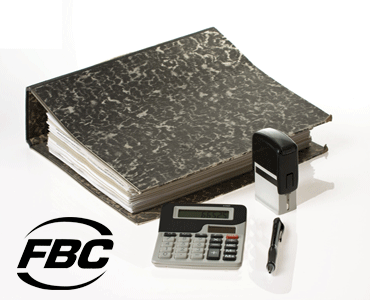Last updated: May. 16, 2018
Canada’s agricultural industry has evolved over the last 50 years, and not just when it comes to farming implements. The way farm operators maintain their business and financial records has changed dramatically too.
Where some farmers used to keep handwritten records and just hand their tax professional a box of receipts, today, they can keep track of their transactions on a spreadsheet and store that information in cloud accounting solution, such as Kashoo.
While record keeping doesn’t need to be complicated, it does need to be thorough, accurate, and timely, providing the necessary information when needed and helping you understand the intimate details of your farming operation.
Here are some of the top reasons why it’s important to maintain good farm business records.
Develop a Uniquely Tailored Record Keeping System
The first step in managing farm business records is to establish an up-to-date, accurate record-keeping system.
Many people think that the only reason to keep farming records it to make life easier come tax season. But record keeping plays a much larger role for farm operators.
In addition to tax preparation, detailed, accurate, up-to-date farm business records identify the farm’s strengths and weaknesses, helps the business grow, and makes it easier to apply for a loan or even sell the farm.
A uniquely tailored record keeping system also makes it easier to make sound management decisions. To do this, you need to keep detailed production records. After all, you can’t manage what you don’t measure.
For example, if you own cattle, you’ll want to keep detailed information on when the calves were born, if the cows had calving difficulty, which cows produced calves with the highest or lowest weaning averages, etc.
Detailed Records Improve Profitability and Production
Maintaining farm business records can be daunting, especially deciding what information you need and will use, and figuring out how long you need to keep a record of it.
Keep in mind, farm financial records serve several purposes; records are used for annual income taxes, to acquire loans, and assess the financial status and performance of the farm.
That’s why it’s imperative that you have a good bookkeeping system to keep track of all receipts, bank statements, and invoices.
The farm records need to be categorized in a detailed way, ensuring you can access whatever information you need when you need it. This will make it much easier to conduct regular updates.
More Reasons Why Good Record Keeping Is Essential for Farm Operators
Maintaining detailed, accurate, and timely farm records:
- Helps minimize your farm business tax obligation
- Maximizes deductions
- Makes it easier should you be audited by the Canada Revenue Agency (CRA)
- Provides you with all the information you need to help your farming business grow
- Helps plan for tax payments
- Avoids over or under payments to the CRA
- Makes it easier to pay out profits to shareholders as dividends
FBC, Helping Canadians Reduce Their Tax Burden
To make sure you’re maximizing your farm business income after tax, minimizing your tax burden, and taking advantage of all the appropriate farm business tax deductions, hire a tax expert that understands the intricate nuances of the Canadian farming industry. When it comes to tax preparation, bookkeeping, and accounting, no one understands the farming industry better than FBC.
FBC has worked exclusively with farm operators, small business owners, and independent contractors since 1952. For more than 65 years, we have helped tens of thousands of clients from across Canada prepare and file their taxes.
For more information on FBC and the bookkeeping and farm tax services we offer, call us today at 1-800-265-1002 or submit an online form and an FBC tax specialist will contact you at your earliest convenience.
